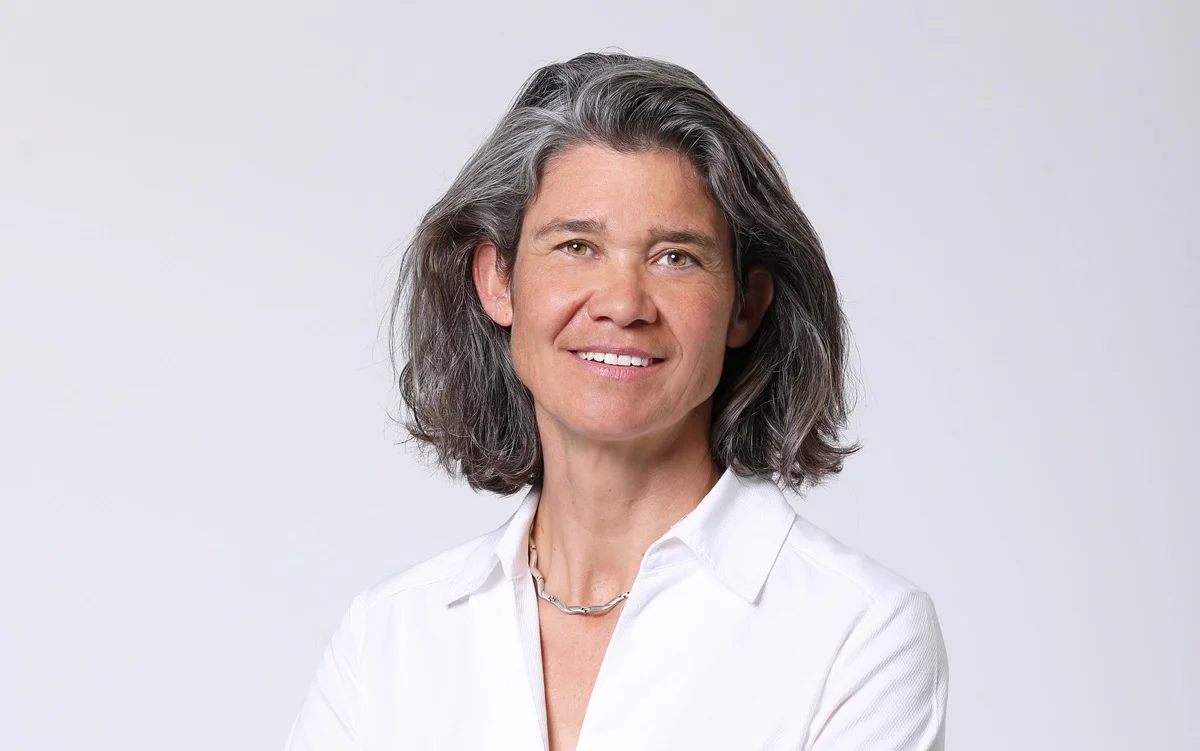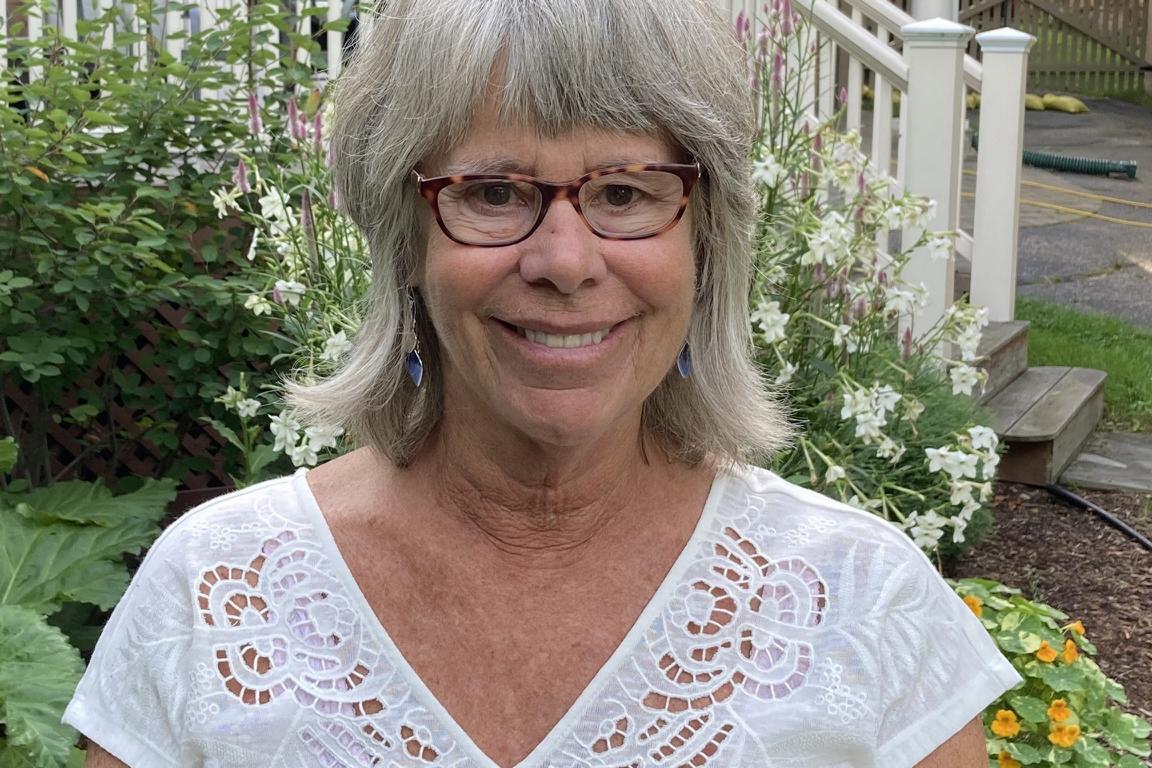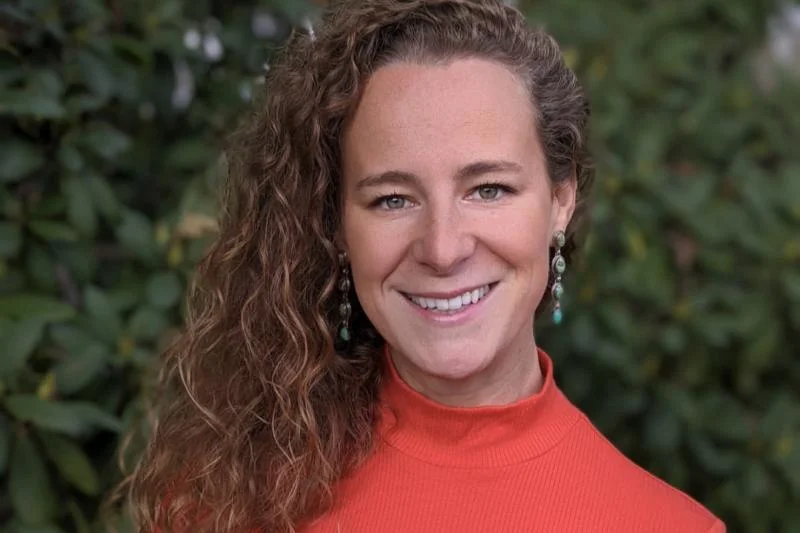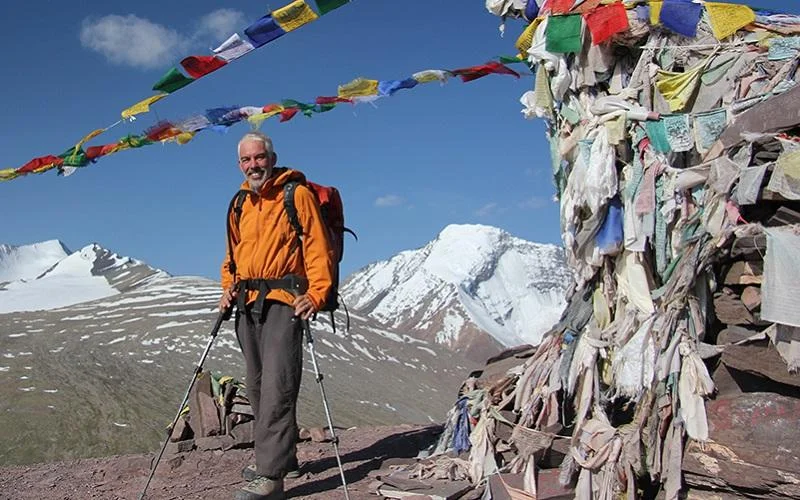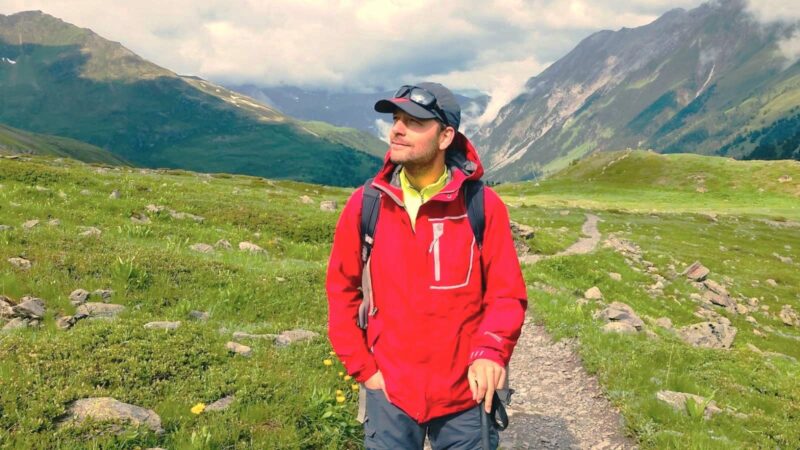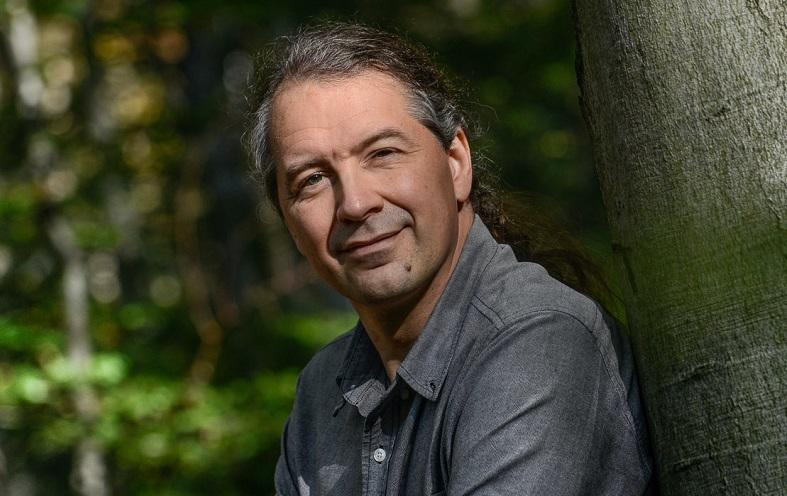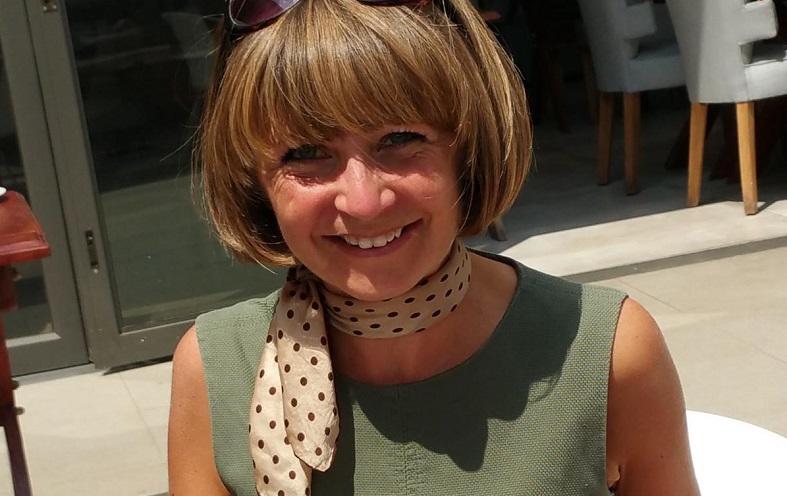
Meet Carole Favre, independent tourism consultant, sustainability advocate, entrepreneur, mentor and facilitator. Carole’s professional journey – like that of many of her colleagues working towards a more sustainable tourism – is remarkable. In this interview, she tells us about her hopes and challenges and why, despite serious setbacks, she has never given up believing in the future and to realize her dreams.
Learn about:
- Key lessons Carole Favre has learned throughout her very diverse career;
- An insider’s take on the Sustainable Tourism community and its flaws;
- Key challenges entrepreneurs and destinations face right now regarding sustainability;
- 7 criteria which make a sustainable tourism award worth applying for;
- Tips for sustainable tourism entrepreneurs on how to get started and then keep momentum.
Carole, your professional journey began in education and retail – do you remember what triggered your interest in focusing your career on tourism and sustainability? And your thoughts/view or expectations back then?
What triggered my career in tourism was utter desperation! I had moved to the UK after 4 ½ years in Lithuania and could not find any work related to what I had done in the past, apart from a cleaner’s job in a B&B. I had to pause and assess what else I could do.
Since I speak four foreign languages fluently and had travelled to weird places in the old Soviet bloc, I thought I might have a chance as a Travel Agent in a Student/Adventure specialist agency in London. Fed up with calling and getting nowhere I decided to ‘squat’ the sofa at reception until they gave me an appointment for an interview. It worked, and I got the job.
I then moved on to work for the Products Department but the pay was dreadful. This prompted me to apply for a Lecturer in Tourism position closer to home. I got the job, qualified as a Teacher and completed another degree, this one a BA in Tourism Management. There was no planning, just a clear sense of urgency to find a job that involved some level of brain activity, because not having a job was just killing me. I guess I knew unconsciously that tourism was my calling!
After 10 years, and a relationship breakup, I ended up alone at Christmas and New Year. I decided it was time for an adventure and chose to travel to Ethiopia for two main reasons: first, it happens to be Michael Palin’s favourite destination and I adore him; second, being in my 40s, the images of the famine in Ethiopia still hunted me and I wanted to see how the country had changed if it had at all.
I booked a tour with Tesfa, a great CBT project in the mountains of Lalibela, and immediately decided that I wanted to use my teaching skills and business experience to develop similar projects – I could see the impacts that tourist money was having on villages and how this was managed effectively by the communities themselves.
Back in the UK, I started an MA with the Open University in Conflict and Development, then was invited by Prof. Xavier Font to enrol on the MSc in Responsible Tourism Management in Leeds. I never imagined that I could have a Masters, let alone that the MSc would lead me to do what I do today.
How has your view on sustainable tourism changed since? Which changes have you witnessed?
On a personal level, I came to the MSc with very dogmatic ideas about mass tourism, especially all-inclusive and how they badly impact on destinations. I was very righteous in wanting to make the world a better place, seeing the world in two colours.
When I learned that done well, all-inclusive can have much greater positive impacts than any other type of accommodation option, I realised that things were far more complicated in terms of tourism and sustainability than I had first considered.
Prof. Harold Goodwin always used to say that ‘the road to hell is paved with good intentions’ – that resonated immensely with me and it underpins everything that I chose to do now.
On a more general level, I don’t think that I have seen many changes in the world of sustainability. I still think that it is an obscure concept that belongs to activists/believers (the Tribe) and that there is a complete failure across the board to vulgarise it and make it an aspirational life choice, as aspirational as a MacBook Air.
Sustainability communication is by and large incredibly poorly executed by businesses because they go about it the wrong way, not understanding that they have to learn lessons from successful companies that operate in other sectors. And that they have to listen to marketing gurus, such as Seth Godin or Simon Sinek, who offer strategic insights into consumer and company behaviour that lead to success.
I know this will sound controversial, but the Sustainable Tourism sector is incredibly inward looking, especially when one considers that it is made of people that are well travelled and in essence, admittedly incredibly open. We seem to be obsessed with fighting a war, with teaching people how to behave better, rather than understanding what tourists are looking for and delivering it in a more intelligent way.
I know that a lot of people won’t like this, but the responsibility is first and foremost on us, not on the tourists. Our responsibility is to go for what we love, and to share it around; not to preach.
What motivated you to set up your London-based consultancy Small Matters? What is it about?
Originally, I set up Small Matters to support small and micro businesses in emerging or developing destinations to access western markets. However, my various interventions in countries have shown me that destinations in Asia, Africa and Latin America really should focus on developing links within their own continents and across each other.
We need to move away from this persisting colonial view about development that suggests that only developed economies represent viable source markets.
For example, Asian Millennials are driving tourism growth, so is the South African Black middle-class (and Nigeria is waiting to explode). I am now much more interested in looking closer to home, especially as trade halves as distance doubles. However, I am also rethinking my business altogether.

Which of your recent projects did you personally find the most inspiring?
In the last 3 years, I have run several workshops for businesses on market access in developing destinations (e.g. Haiti, Brazil, Timor Leste, Indonesia, Lesotho) but my vision is now much more focused on female entrepreneurs that want to create a living legacy; women who have aspirations about running a business that profits communities but do not know how to go about it or are stuck with making the right decisions about spreading their wings.
I am working on launching an online learning and coaching platform for them. In parallel, I am developing my one-one-one mentoring business, where I tap into a woman’s vision (through meditation… I know this sounds weird but it works) to help her create life and business choices around that vision and make the vision happen.
I use my business expertise, my teaching skills, my intuitive coaching tools and processes to not only work on business matters but also on changing mindset, which in my experience is the biggest barrier to growth.
On the other hand, being able to tune into an entrepreneur’s vision gives me enough information to write content for the website and to communicate how that entrepreneur practices sustainability from the heart. That is the only sure way to achieve ‘authenticity’. This helps the brand and position each business to attract the clients and staff that share their values. Thus, and for as weird as it might sound, I now call myself a ‘Vision Whisperer’.
Various of our previous interviewees, including Megan Epler Wood, have identified (lack of) market access as one key issue preventing local communities from participating in the tourism supply chain. Do you have ideas and examples of how this challenge can be overcome?
The work I did in Lesotho is a perfect example of how market access training targeted at a small group of engaged micro tour providers led to concrete market links with operators in South Africa. The challenge to accessing market can be overcome when the tourism authorities of the country understand that Market Access experts must be given the time, freedom and budget to:
- teach businesses on all that market access involves (e.g. from the design of the experience to pricing, decors/setting for accommodation, complaints handling and website design),
- take action with the trainees to link with outside markets, which might include physical introductions (thus travel)
- work on issues to do with self-confidence, awareness and risk-taking in changing environments.
Just a few weeks ago, some of the trainees were rewarded with a trip to China for making substantial progress since the workshop; they are participating in tourism fair to understand this market better, as many Chinese based in South Africa are looking to travel to Lesotho. They are learning about guiding and Chinese culture, and I get daily WhatsApp updates from them. In that way, I make sure they know that I care about them and how well they do, and that I am at hands to help in case of problems.
Tourism Authorities really need to understand that long-term mentoring and coaching of micro and small businesses is essential if they want to grow tourism the right way: in a cohesive manner that ensures the creation of a wide and sustainable product portfolio, which caters to the needs of the guests they want to attract.
The UN has declared 2017 the International Year of Sustainable Tourism for Development. In your view, which are the main destination challenges right now regarding the sustainability of travel and tourism?
I am glad that the UN is waking up to sustainable tourism but honestly, I cannot see what is going to change about the fact that world populations are increasingly travelling because they are becoming richer, want to reward themselves and are curious to explore opportunities that have been denied to them until now.
As far as I am concerned it should be the Year of Sustainable Tourism every year, and such an approach is the very opposite of what sustainability is about! A year or no Year, I can’t see that it is going to revolutionise thinking at the destination level.
When it comes to challenges faced by destinations, the main one has to do with positioning and branding. Competition is fierce and even developed economies such as France or Greece depend on tourism.
This begs the question: why should tourists come to my country/destination? Is it because I need their money no matter what, OR because I stand for a certain idea of the future (in line with wider politics such as the Paris Agreements) and want to offer a type of tourism that is fair to my people, their heritage, their environment in order to create a fair society?
The challenge is for the destination to define its vision to communicate its value. The problem is that many countries are governed by politicians who engage in small politics for short-term gains, rather than leaders with farsightedness that span longer than their mandate.
Imagine you could turn back time and start all over again. Knowing what you know now about the travel business and sustainability, what would you do differently?
I would read my contracts more carefully to fully understand the nature of the small politics being played around me when it comes to tourism development, its funding and what sustainability means to each of the players involved.
Sadly, I have always had very little time for playing diplomatic games and this has led me to make some mistakes I should have been able to avoid. Nevertheless, had I not made these mistakes, I would not be where I am today.
I have come to realise that I don’t fit a lot of moulds, so I am creating my own and baking my own cake in it, in the hope that others will like the taste of it.
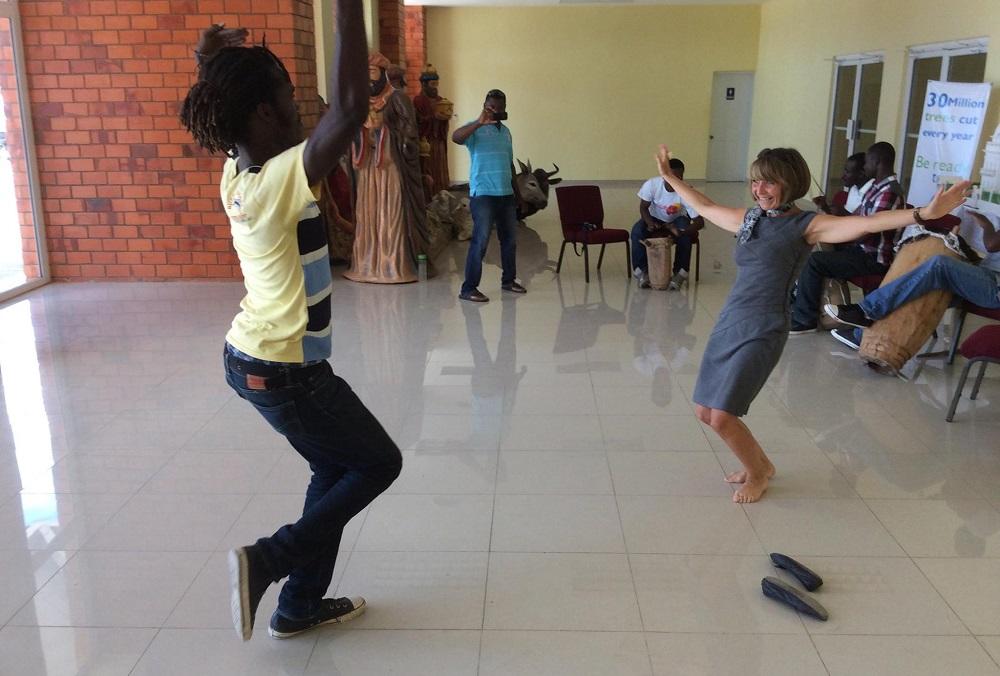
In 2013 you coordinated the World Responsible Tourism Awards. Considering the time and energy needed to prepare applications, do you believe such awards are useful for small tourism businesses? Which are the benefits?
The only type of awards that I consider worth applying to would need to meet the following 7 criteria:
- the award is relevant to the business’ vision/strategy in relation to the benefits it claims to bring;
- the award is free to apply to;
- even small businesses can be easily nominated;
- questions are hard to answer in the sense that they demand to show evidence, which means the business is truly committed to generating impacts;
- the rules are such that evidence cannot simply be made up the week before application;
- the judging panel is irreproachable (made of people that have no interest in any of the nominees or declare that interest publicly) and is fairly representative (e.g. gender, aged balanced);
- winning brings recognised marketing benefits evidenced in higher sales and media coverage by former winners.
I happen to still be in contact with some small businesses and destinations that won their award in 2013. They have witnessed major increases in sales and interest worldwide.
In the end, I don’t believe that being a small business is an issue. If systems are in place from Day 1 then they become part of the way a business/destination is run and reports to its clients to show that they take responsibilities for their actions.
However, I would seriously suggest hiring someone to help complete the application form well in time; that can be an intern or a student who does it for free, or someone like me who is more clued up but comes at a price. When I have done this, the application process has ended up being a great excuse to address all the little things that were not working quite right and to really think about the vision in a more inspirational way.
Your advice to the passionate entrepreneurs out there, eager to develop products and services aimed at supporting their community through tourism?
Do not judge your idea on what is feasible today: know your vision, love your vision and work towards making it happen. The only parameter of success is that you work towards creating what you love – and this means that you should never work to make up for what you do not have (e.g. money, acceptance from your peers).
If you respect your vision, people will respect you and help you make it happen in return. Legacies are not built in one day and require a fair amount of stumbling and learning on the way.
The joy of travel is to get lost – the same applies to business. Jump into the unknown to see whether it leads you to some secret hotspot or to a dead end. You won’t know if you don’t jump!
Thank you, Carole.
Connect with Carole Favre on LinkedIn or visit the Small Matters website or Facebook page.
Enjoyed our interview with Carole Favre on her sustainable tourism consulting, insights and lessons learned? Share and spread the word!

